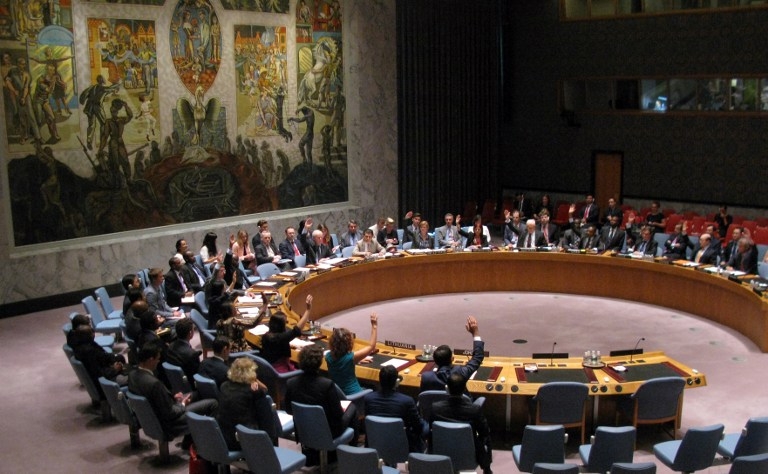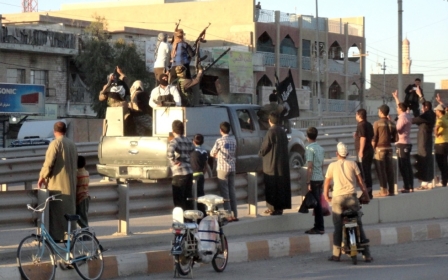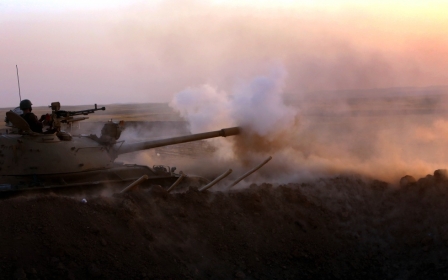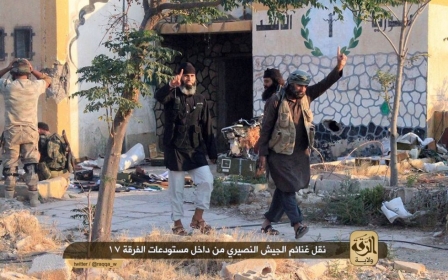UN adopts resolution on Islamic State

The UN Security Council on Friday unanimously adopted a resolution aimed at weakening militants in Iraq amid reports of Islamic State militants killing dozens of residents in besieged ethnic Yazidi areas.
The resolution, under Chapter VII of the UN charter, allows use of “all necessary measures” to “suppress the flow of foreign terrorist fighters” to Iraq and Syria, where IS has made widespread advances during which it has been accused of committing atrocities.
The resolution, which is also aimed at Syria’s al-Nusra Front and other al-Qaeda-inspired groups, identifies these groups as a threat to civilians, particularly women and children.
Western media reported dozens of men from the Yazidi faith were massacred in the village of Kocho, 45 kilometres (30 miles) from the Kurdish-held town of Sinjar.
Some reports spoke of residents being told to convert to Islam or face summary execution.
While details of the latest incident were not immediately confirmed, such attacks in the past have led the US military to take action.
US President Barack Obama said a first week of air strikes had broken the siege of the northern Sinjar mountain where civilians had been hiding from militants for more than 10 days.
The US carried out more air strikes on Friday, the military said, after receiving reports that Islamic State "terrorists were attacking civilians" in the area.
As aid groups tried to cope with the hundreds of thousands of people displaced by Islamist advances in northern Iraq, ingredients of a fight-back began falling into place.
In New York, the UN Security Council passed a resolution aimed at weakening militants in Iraq and Syria by cutting off funding and the flow of foreign fighters.
And EU ministers agreed at an emergency meeting in Brussels to back the arming of Iraqi Kurdish fighters.
Iraqis and foreign powers meanwhile voiced relief after Prime Minister Nuri al-Maliki's decision on Thursday to step down.
US National Security Adviser Susan Rice said it was "another major step forward" in uniting Iraq, where Islamic State fighters have snapped up large swathes of land in a lightning and brutal offensive, raising the spectre of genocide.
UN chief Ban Ki-moon also welcomed the divisive Maliki's move and called for the swift formation of "an inclusive, broad-based government ready to immediately tackle these pressing issues".
Support for Maliki's designated replacement, Haidar al-Abadi, has poured in from sources as diverse as Iran and Saudi Arabia.
When militant forces launched their offensive on 9 June, Kurdish peshmerga forces initially fared better than retreating federal soldiers, but the abandoned US-made weaponry government troops left in their wake turned IS into a formidable foe.
Militants advanced within miles of autonomous Iraqi Kurdistan last week, which was one of the factors that triggered US air strikes and broad foreign support for the cash-strapped Kurds.
When the militants, who have controlled parts of Syria for months, swept across the Sunni heartland of Iraq in early June, they encountered little or no resistance.
Sunni tribes rise up
Maliki's critics say he bears some of the responsibility for the crisis that brought the country to the brink of breakup for pushing sectarian policies that have marginalised and radicalised the Sunni Arab minority.
In another potentially game-changing development, 25 Sunni tribes in the western Anbar province, including some that had previously refused to work with a Maliki-led government, announced a coordinated effort to oust IS fighters.
"This popular revolution was agreed on with all the tribes that want to fight IS, which spilled our blood," Sheikh Abduljabbar Abu Risha, one of the leaders of the fresh anti-militant drive, told AFP.
Anbar police chief Major General Ahmed Saddak said security forces were backing the uprising, which began at 6:00 am (0300 GMT) on Friday.
"The battles are continuing until this moment," he said, putting the toll at 12 militants killed and adding: "We will not stop until the liberation of Anbar."
Anbar was the birthplace of a 2006 US-backed uprising against extremist militants that helped bring about a sharp reduction in violence.
Abadi and Maliki 'alike'
The decision by Maliki, 64, to turn the page on eight years in power was welcomed across much of Iraq, but some said little will change.
Maliki, who rose from anonymous exile to become a powerful and feared ruler, said late Thursday he was stepping aside to "facilitate the progress of the political process and the formation of the new government".
The mountain ordeal of tens of thousands of people, mostly from the Yazidi minority, was one of the most dramatic chapters of the devastating two-month conflict and another reason Obama ordered air strikes in Iraq, three years after pulling his troops out.
"We helped save many innocent lives," Obama said.
According to the Pentagon, there are still up to 5,000 people on Mount Sinjar, but some of them live on the mountain and may not want to leave.
Thousands of people have poured across a border bridge into Iraq's Kurdish region after trekking through neighbouring Syria to find refuge, many with nothing but the clothes on their backs.
The hundreds of thousands of Yazidis, Christians, Turkmen, Shabak and other people who have been displaced in recent weeks have little prospect of returning home any time soon, but Obama has ruled out US troops on the ground.
New MEE newsletter: Jerusalem Dispatch
Sign up to get the latest insights and analysis on Israel-Palestine, alongside Turkey Unpacked and other MEE newsletters
Middle East Eye delivers independent and unrivalled coverage and analysis of the Middle East, North Africa and beyond. To learn more about republishing this content and the associated fees, please fill out this form. More about MEE can be found here.




